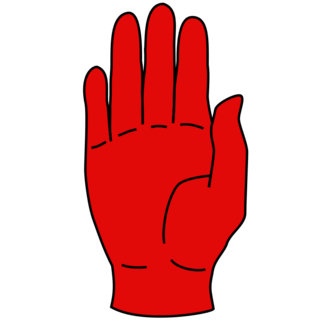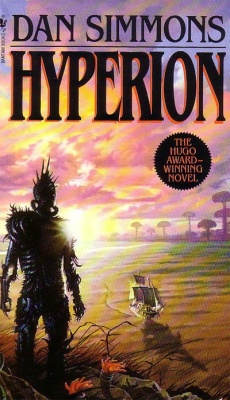
The Pilgrim's Progress from This World, to That Which Is to Come is a 1678 Christian allegory written by John Bunyan. It is regarded as one of the most significant works of theological fiction in English literature and a progenitor of the narrative aspect of Christian media. It has been translated into more than 200 languages and has never been out of print. It appeared in Dutch in 1681, in German in 1703 and in Swedish in 1727. The first North American edition was issued in 1681. It has also been cited as the first novel written in English. According to literary editor Robert McCrum, "there's no book in English, apart from the Bible, to equal Bunyan's masterpiece for the range of its readership, or its influence on writers as diverse as William Hogarth, C. S. Lewis, Nathaniel Hawthorne, Herman Melville, Charles Dickens, Louisa May Alcott, George Bernard Shaw, William Thackeray, Charlotte Bronte, Mark Twain, John Steinbeck and Enid Blyton." The lyrics of the hymn "To be a Pilgrim" are based on the novel.

Niall Noígíallach, or Niall of the Nine Hostages, was a legendary, semi-historical Irish king who was the ancestor of the Uí Néill dynasties that dominated Ireland from the 6th to the 10th centuries. Historical Irish annalistic and chronicle sources place his reign in the late 4th and early 5th centuries, although modern scholars date him about half a century later.
Lóegaire (died c. 462), also Lóeguire, is said to have been a son of Niall of the Nine Hostages. The Irish annals and king lists include him as a King of Tara or High King of Ireland. He appears as an adversary of Saint Patrick in several hagiographies. His dealings with the saint were believed to account for his descendants' lack of importance in later times. There are several accounts of his death, all of which contain supernatural elements, some of which concern his wars against Leinster.
Eochaid Mugmedón was a legendary Irish king. According to medieval Irish legend and historical tradition, Eochaid was a High King of Ireland, best known as the father of Niall of the Nine Hostages and ancestor of the Uí Néill and Connachta dynasties. He is not mentioned in the list of kings of Tara in the Baile Chuind, but is included in the synthetic lists of High Kings in the Lebor Gabála Érenn, the Irish annals, Geoffrey Keating's history, and the Laud Synchronisms.
Marjorie of Carrick was Countess of Carrick, Scotland, from 1256 to 1292, and is notable as the mother of Robert the Bruce.

Hyperion is a 1989 science fiction novel by American author Dan Simmons. The first book of his Hyperion Cantos series, it won the Hugo Award for best novel.
Fedelmid mac Crimthainn was the King of Munster between 820 and 846. He was numbered as a member of the Céli Dé, an abbot of Cork Abbey and Clonfert Abbey, and possibly a bishop. After his death, he was later considered a saint in some martyrologies.

The history of Ireland 795–1169 covers the period in the history of Ireland from the first Viking raid to the Norman invasion. The first two centuries of this period are characterised by Viking raids and the subsequent Norse settlements along the coast. Viking ports were established at Dublin, Wexford, Waterford, Cork and Limerick, which became the first large towns in Ireland.

Donnchad mac Domnaill, called Donnchad Midi, was High King of Ireland. His father, Domnall Midi, had been the first Uí Néill High King from the south-central Clann Cholmáin based in modern County Westmeath and western County Meath, Ireland. The reigns of Domnall and his successor, Niall Frossach of the Cenél nEógain, had been relatively peaceful, but Donnchad's rule saw a return to a more expansionist policy directed against Leinster, traditional target of the Uí Néill, and also, for the first time, the great southern kingdom of Munster.
Craig Dean is a fictional character from the British Channel 4 soap opera Hollyoaks, played by Guy Burnet. The character was introduced as a youngest brother of established character Steph Dean. He made his first appearance on 24 October 2002. Burnet has won and been nominated for several awards for this role. Burnet departed the role in September 2007 and returned to the show on 3 September 2008 in a storyline which saw Craig secure a "sunset ending" with John Paul McQueen. He made another appearance after his departure in spin-off show Hollyoaks Later in November 2008. The character is regarded as one of Hollyoaks most iconic characters.
Niall Glúndub mac Áeda was a 10th-century Irish king of the Cenél nEógain and High King of Ireland. Many Irish kin groups were members of the Uí Néill and traced their descent from Niall of the Nine Hostages.
Cerball mac Muirecáin was king of Leinster. He was the son of Muirecán mac Diarmata and a member of the Uí Fáeláin, the descendants of Fáelán mac Murchado, of one of three septs of the Uí Dúnlainge of modern County Kildare in Ireland.
Niall mac Áeda, called Niall Caille to distinguish him from his grandson Niall mac Áeda, was High King of Ireland.
Turgesius was a Viking chief active in Ireland during the 9th century. Turgesius Island, the principal island on Lough Lene, is named after him. It is not at all clear whether the names in the Irish annals represent the Old Norse Thurgestr or Thorgísl. John O'Donovan and Charles Haliday independently identified him with Ragnar Loðbrók, but the identification is not generally accepted.

Geoghegan is a surname of Irish origin.

Dick Sand, A Captain at Fifteen is a Jules Verne novel published in 1878. It deals primarily with the issue of slavery, and the African slave trade by other Africans in particular.

Niall Rafferty is a fictional character from the British Channel 4 soap opera Hollyoaks, played by Barry Sloane. He first appeared during an episode broadcast on 3 December 2007. Former Brookside actor Sloane was cast as the "mysterious" hairdresser Niall and was introduced by the series' producer Bryan Kirkwood. During Sloane's portrayal of Niall on-screen, he was central to a storyline involving the already-established McQueen family and it was revealed Niall was the illegitimate son of Myra McQueen. The storyline featured Niall seek revenge on the McQueens, which concluded in highly advertised episodes featuring Niall kidnapping his siblings and causing the death of his half-sister Tina Reilly. Niall was portrayed by upcoming actor Devon Jackson, the older brother of Hollyoaks actor Kieron Richardson, in flashback scenes depicting Niall's childhood.
Indrechtach mac Muiredaig Muillethan was a King of Connacht from the Uí Briúin branch of the Connachta. He was the son of Muiredach Muillethan mac Fergusso, a previous king. He was of the Síl Muiredaig sept of the Uí Briúin.
Flaithbertach Ua Néill was king of Ailech, a kingdom of north-west Ireland. He abdicated in 1030 and undertook a pilgrimage to Rome, for which reason he was known as Flaithbertach an Trostáin. Following the death of his son Áed in 1033, Flaithbertach left his retirement and resumed the leadership of the Northern Uí Néill.
Events from the 11th century in Ireland.